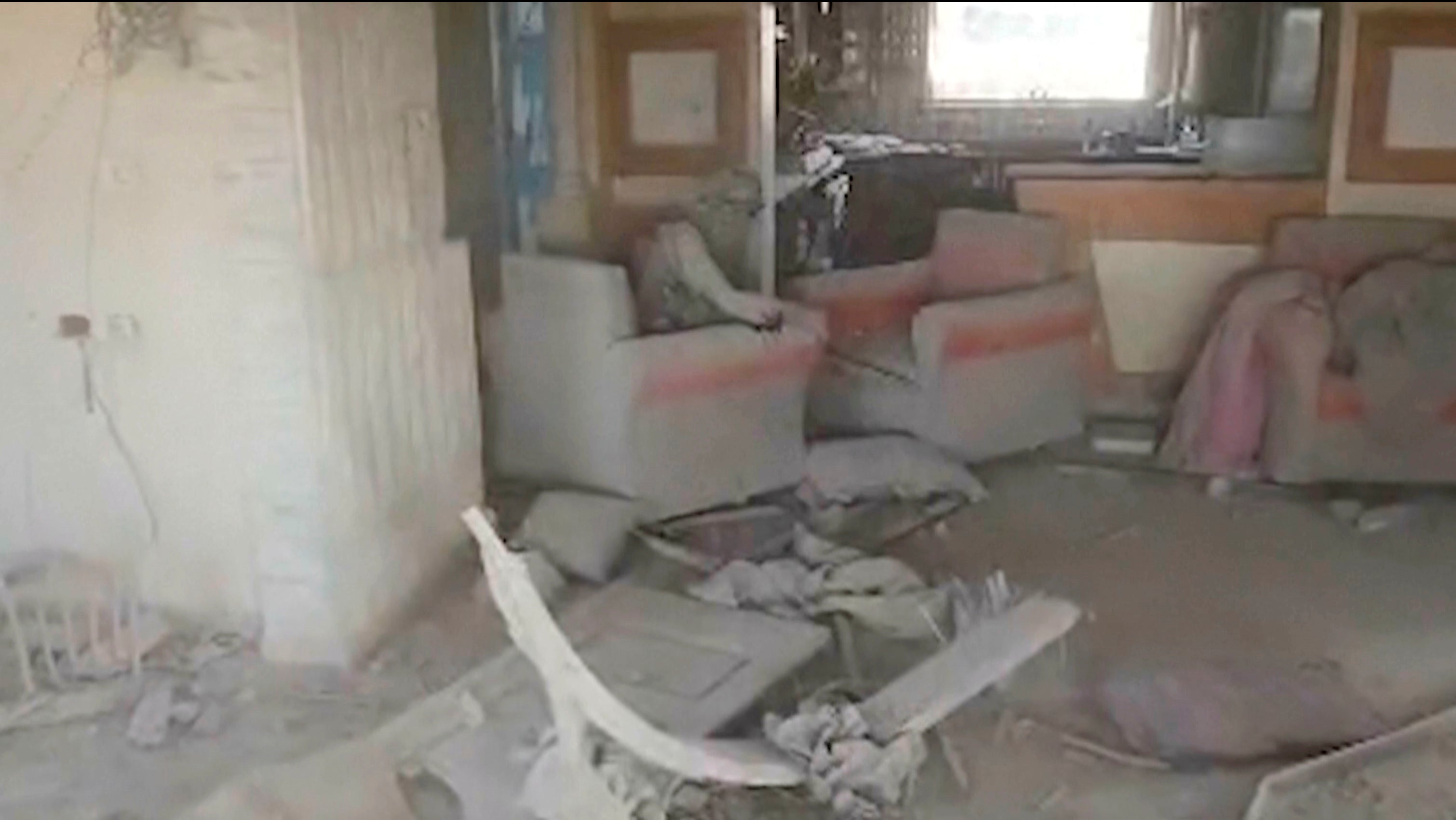Sinwar’s death shows the horror of October 7 was a terrible tactical mistake by Hamas
As Israel’s No 1 enemy is killed in Rafah, his masterminding of last year’s massacre will go down as a fatal mistake for the militant organisation, says Mark Almond. If only he had played his hand differently...


After Napoleon ordered the judicial murder of an opponent, his cynical foreign minister Talleyrand famously commented that the execution “was worse than a crime – [it was] a mistake”.
As Yahya Sinwar faced his own grisly end this week, did the terrorist leader of Hamas and the reputed mastermind behind the 7 October attacks ponder what a terrible and cruel tactical error he had committed by launching the rampage?
The final moments of Israel’s No 1 enemy – alone, on an armchair, caked in dust, amid the rubble of a bombed-out building in Rafah – were captured for posterity by an IDF drone. His demise was a personalised version of the fate shared by countless thousands of Palestinians, who have died under a year-long Israeli bombardment.
The conflict has been a humanitarian nightmare for his people – and provoking it in the first place was a wickedly irresponsible act.
Imagine, if a strategically more astute Hamas and a more humane Sinwar had launched the 7 October attack but played it out very differently, how things for Gaza’s people might have gone.
Having already humiliated the Israeli army by breaking through the extraordinarily sophisticated border protecting southern Israel, they did not have to slaughter, rape and mutilate those in their path. Immediately releasing the captives taken that day would have had two dramatic advantages for Hamas. It would have dispelled the worldwide wave of sympathy for Israel as the victim of terrorism. Instead, Hamas could have presented itself as magnanimous to the innocent civilians of its political enemy.

It would also have destroyed Benjamin Netanyahu’s premiership. Already under huge domestic pressure in Israel thanks to corruption allegations and his controversial plans to change how judges were selected, Netanyahu, with his claims to be “Mr Security” would have been humiliatingly exposed. Worse still for him, an immediate release of the civilians before the hostage trauma started would have removed much of the justification for the way in which he handled the crisis.
But Sinwar could not imagine using such “generosity”, even to his own advantage.
His family had suffered at the hands of the Israeli military, sparking his quest for revenge. Nothing could dilute that – not even Israeli doctors removing his brain tumour while he was in prison there. The cancer of revenge was eating him up – and, since 7 October, it has killed tens of thousands of others.
Of course, “what ifs” offer no solutions to what has happened. But now the question is whether Palestinians recognise, whatever their grievances against Israel, that Sinwar’s approach was suicidally self-destructive – and that they need to find a different way out of the rubble in which they find themselves.
Yes, Israel’s use of relentless, massive firepower has alienated many in Western countries who had been broadly sympathetic towards the country. But random attacks on Israeli civilians, even guerrilla hits on Israeli soldiers, will not turn the tide.
Unfortunately, the tragic legacy of Sinwar’s all-or-nothing approach is likely to be more nihilism from radicalised Palestinians. Many Israelis have compared the last moments of Sinwar, caught by a drone camera, to Hitler’s end in the Berlin bunker in 1945. Back then, Nazi resistance folded within days of the Fuhrer’s death, and Germans were well aware that it was their leader’s insensate aggression that had wrought disaster upon them.
Palestinian – more precisely pro-Hamas – voices do not blame the “martyr” Sinwar for triggering their people’s apocalypse. They recite the grim litany of grievances since 1948 that he used to justify inciting the current tragedy. They parrot the aphorism that the Israel-Palestine conflict “didn’t start on 7 October”. It didn’t end that day, either.
Now, another generation of irreconcilable Sinwars is growing up among the destitute survivors. A similar process is probably going on with Hezbollah in southern Lebanon.
The big change may be elsewhere. Iran’s leaders have observed the grim fate of their former proxies, Sinwar and Hassan Nasrallah – the head of Hezbollah who was killed last month in an Israeli bomb attack in Beirut – and could decide to drop their costly support for terrorist groups who put Tehran in the firing line.
Peace between Israel and Palestinians may still not be on the cards, and the prospect of a two-state solution may be further away than ever. But tensions could be weakening in the Middle East – unless, that is, Netanyahu decides to follow up his knockout blows to the Hamas leadership in Gaza by going for Tehran.
Sinwar might not be the only leader to gamble everything on total victory.
Mark Almond is director of the Crisis Research Institute, Oxford
Join our commenting forum
Join thought-provoking conversations, follow other Independent readers and see their replies
Comments
Bookmark popover
Removed from bookmarks